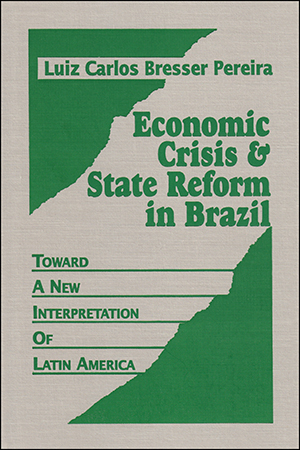
- 1996/258 pages
Economic Crisis and State Reform in Brazil:
Toward a New Interpretation of Latin America
Hardcover: $28.00
ISBN: 978-1-55587-532-9
Choice Outstanding Academic Book!
This is a book about the economic crisis that took hold of Brazil and the rest of Latin America in the 1980s, its political consequences, and the economic reforms that were begun in the mid-'80s, but that remain incomplete a decade later.From his vantage point as both an academic economist and a political insider, Bresser Pereira explains Brazil's—and more generally, Latin America's—economic problems in terms of a crisis of the state. Finding the paradigms of structuralism and dependency no longer useful in the face of the issues of the 1980s and '90s, and rejecting neoliberalism as a solution, his crisis-of-the-state approach seeks a new synthesis, advocating a pragmatic, social democratic strategy for reform.
Fiscal adjustment and structural reforms, argues Bresser, should not be seen as attempts to minimize state intervention, but instead as reforms of the state, with the ultimate goal of rebuild- ing it.





